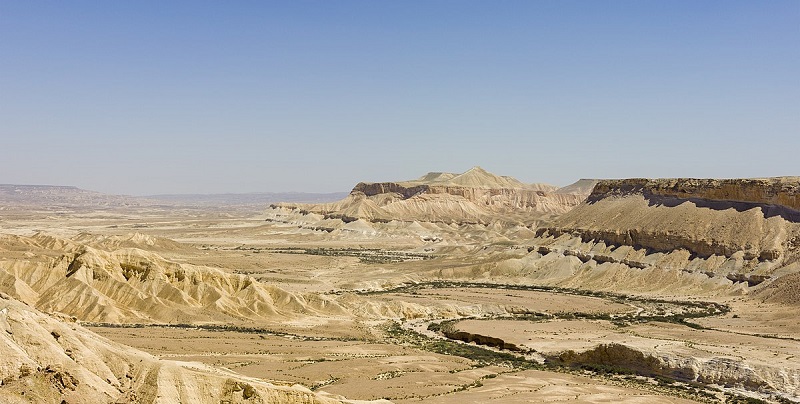From pv magazine International
A solar-plus-storage tender held by Israel attracted alternative energy-storage tech, in addition to the anticipated lithium-ion systems.
Augwind, an Israeli air compressor and energy storage business, said it secured a 120 MWh slice of the storage capacity awarded and has signed a memorandum of understanding with the local unit of French energy giant EDF to install its proprietary AirBattery technology alongside a 5 MW solar array.
The state-owned Israeli Electricity Company (IEC) awarded 33 project contracts in the procurement exercise, amounting to 608 MW of solar generation capacity and 2.4 GWh of storage, with the winning bidders securing 23-year IEC power purchase agreements. The solar electricity price secured was ILS0.1745/kWh ($0.0544). The successful projects must be completed by July 2023.
Augwind said its technology reaches 75-81% efficiency for systems of at least 5 MW capacity. That is less than lithium-ion battery storage but compressed air systems are said not to degrade and to therefore benefit from effectively unlimited cycling.
The AirBattery works by using renewable electricity to compress air to seven bars of pressure in underground storage tanks. The air can be released when needed, turning a turbine to generate electricity.
A levelized cost of electricity of $0.05/kWh, plus 75-81% storage system efficiency, are significant landmarks for compressed air storage.
A study produced by the University of Edinburgh into the seasonal clean energy storage capacity of British saline aquifers estimated investment of $16-59 million into compressed air storage facilities would enable 77-96 TWh of renewable electricity to be stored for two months. Based on storage system efficiency of 54-59%, that would mean seasonally stored electricity with a levelized cost of electricity of $0.42-4.71/kWh.
Eco-friendly
“The data presented by Augwind today is excellent news for the world of renewable energies in general and the world of energy storage in particular, both in comparison with lithium batteries and alternative storage solutions,” said Augwind chief executive Or Yogev. “Augwind’s AirBattery system has an energy efficiency that is generally similar to pumped storage stations’ efficiency.
Compared to a storage system based on lithium batteries, despite their higher initial efficiency, lithium batteries have an obvious disadvantage in that their efficiency and structural capacity fade over the years and necessitate replacement and upgrade for a new storage system every few years or cycles. In addition, lithium-ion systems contain chemical components, some of which are not recyclable, while Augwind’s solution is designed for decades, while also being green, environmentally friendly, and based solely on water and air.”
This content is protected by copyright and may not be reused. If you want to cooperate with us and would like to reuse some of our content, please contact: editors@pv-magazine.com.









This CAES is the way to go…
as small (huge volume) or large (less volume) systems are possible using the PRESENT Infrastructure of Air Compressor/Turbine Motor/Generators and High Pressure Storage Equipment with and without Thermal Storage….. no need for “new technologies” or factories or infrastructure.
However, it DOES require these Industries to… start moving and stay ahead to be ready by developing appropriate equipment for this Tsunami of Demand for CAES.
This “Tsunami/Demand” will last for 30 years to support this Global 30-40TW, $30-40Trillion Market ($1+Trillion/yr) for “Sunset-to-Sunrise” Energy Storage in a 150TW ZERO POLLUTION WORLD by 2050 generating 180,000TWhrs/yr.
This System will use ONLY AgriVoltaics on barely 1Million km2 or the 15Million km2 of PRESENT Global Agricultural Land…. preserving existing land enhancing Earth’s Bio-Diversity.
No need to “waste time” and resources on “Exotic” Options like…. Space Based.. On/Off-Shore Wind … Water Body… even Rooftops… Systems…. or polluting short-life Batteries.
THE URGENCY COMES FROM THE FACT THAT GLOBALLY 25,000 DIE PRE-MATURELY DAILY AROUND THE GLOBE & HUNDREDS OF MILLIONS SUFFER FROM THE EFFECTS OF POLLUTION.
FYI…. these Pre-Mature Pollution Deaths equal or exceed the Annual Death during World War I & II… and require a respibse similar to the above Wars…. TOTAL GLOBAL COMMITMENT TO RID THE WORLD OF POLLUTION…. THE CURSE OF THE INDUSTRIAL AGE…
This also enhances and reinforces rural communities around the Globe and reverses the Mass Global Rural-Urban Migration overwhelming Urban Infrastructure and Development all over the world.